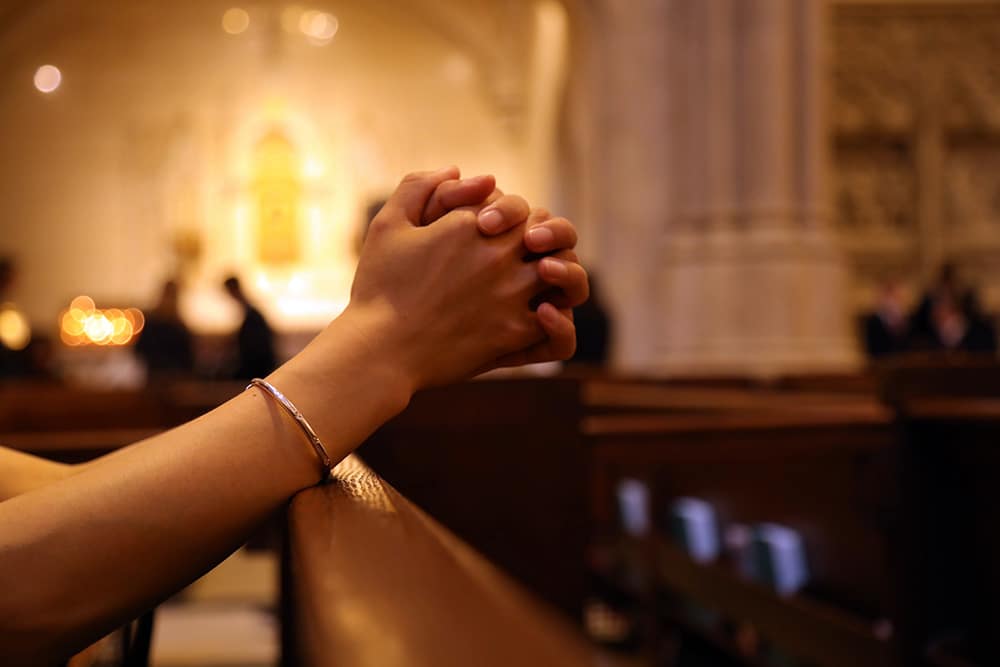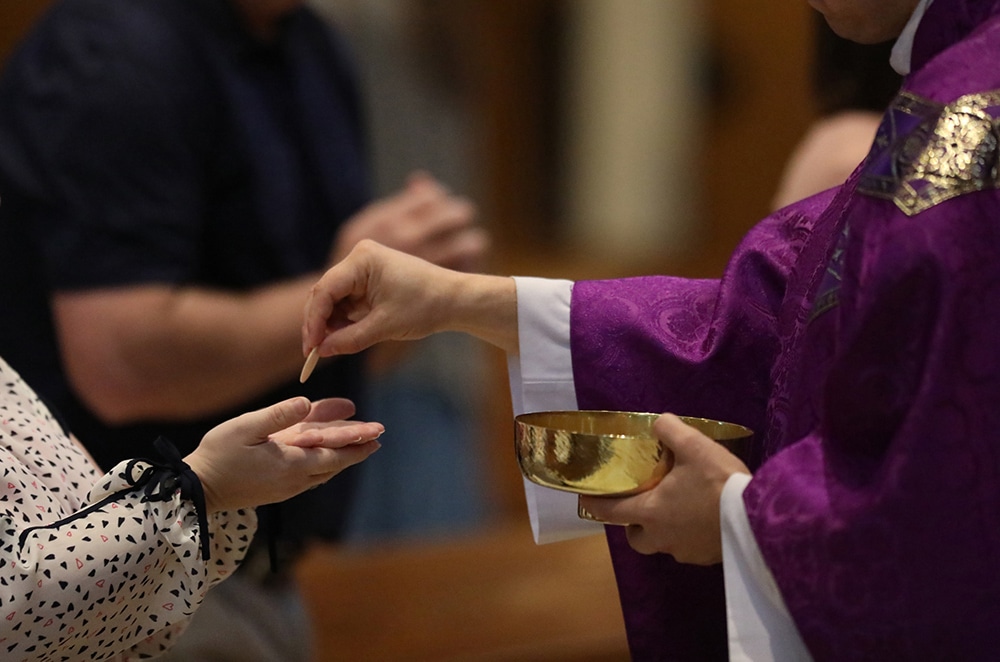 Question: Our priest has taught us that at our particular judgment, our life — good and bad, sin and sorrow and joy — will be reviewed. If that is so, it would seem confession does not truly remove sin. Scripture does tell us, “You will cast into the depths of the sea all our sins” (Mic 7:19) and “I will forgive their evildoing and remember their sins no more” (Heb 8:12). Are confessed sins still with us as part of our final judgment?
Question: Our priest has taught us that at our particular judgment, our life — good and bad, sin and sorrow and joy — will be reviewed. If that is so, it would seem confession does not truly remove sin. Scripture does tell us, “You will cast into the depths of the sea all our sins” (Mic 7:19) and “I will forgive their evildoing and remember their sins no more” (Heb 8:12). Are confessed sins still with us as part of our final judgment?
— John Okeefe, via email
Answer: To say that God forgets our sins is a manner of speaking that is not intended literally. God is omniscient and cannot forget. To say God “remembers our sins no more” means that he no longer ascribes the guilt of them to us; this he has forgiven us. Forgiveness, however, does not remove all the effects of sin or all the punishments due to sin. For example, if a man sinfully gambles away his paycheck and seeks forgiveness from God in confession, the money does not magically reappear, neither are his bills paid. Hence, many of the effects of his sin remain, such that he experiences the punishments of late fees and so forth. These are experienced in this world.
But what of our particular judgment? Scripture teaches a personal (or particular) judgment. St. Paul says, “For we must all appear before the judgment seat of Christ, that each one may receive recompense, according to what he did in the body, whether good or evil” (2 Cor 5:10). He also writes: “It is written: ‘As I live, says the Lord, every knee shall bend before me, and every tongue shall give praise to God.’ So [then] each of us shall give an account of himself [to God]” (Rom 14:11-12). And the Book of Hebrews says, “It is appointed that human beings die once, and after this the judgment” (Heb 9:27). So there is to be some review of our life and what it has amounted to. But how such an accounting takes place is not revealed. Does our life pass before us as some imagine, or are we given a kind of infused knowledge to know in an instant our state before God? It is not clear. While the guilt of past sins does not accrue to us, nevertheless, our sins and our virtues are part of our story; they have affected us and others.
Rather than a kind of courtroom scene, we might find more helpful the image of an honest conversation or encounter with the Lord. At our particular judgment, the key question is: Do we desire the kingdom of heaven on its terms and with its values or not? But even for those who pass this first judgment, there would seem to be another judgment to make: Is the Lord’s work in us complete? Jesus said, “be perfect, just as your heavenly Father is perfect” (Mt 5:48). This is not a threat; it is a promise. The Lord is saying to us, “When the power of my cross and sacrifice have had their full effect in you, you will have a godly perfection.” Most of us understand that this is not fully realized in us now, and, if we were to die today, some finishing work would be needed. St. Paul wrote: “the one who began a good work in you will continue to complete it until the day of Christ Jesus” (Phil 1:6). Hence, at the judgment seat, any lingering imperfections and sinful patterns will be consigned to purgation. Further, it is not merely sins that afflict us, it is also hurts, sorrows and regrets. We cannot take these things to heaven; for it would not be heaven. Hence these things must also be purged.
There are two images in Scripture that point to the process of this final healing and perfecting of the promises of the Lord. There is a kind of fiery purification described by St. Paul: “the work of each will come to light, for the Day will disclose it. It will be revealed with fire, and the fire [itself] will test the quality of each one’s work. If the work stands that someone built upon the foundation, that person will receive a wage. But if someone’s work is burned up, that one will suffer loss; the person will be saved, but only as through fire” (1 Cor 3:13-15). Of the second kind of purgation of our sorrows and hurts, the Book of Revelation says that regarding the dead, Jesus “will wipe every tear from their eyes” (Rev 21:4).
Msgr. Charles Pope is the pastor of Holy Comforter-St. Cyprian in Washington, D.C., and writes for the Archdiocese of Washington, D.C. at blog.adw.org. Send questions to msgrpope@osv.com.







